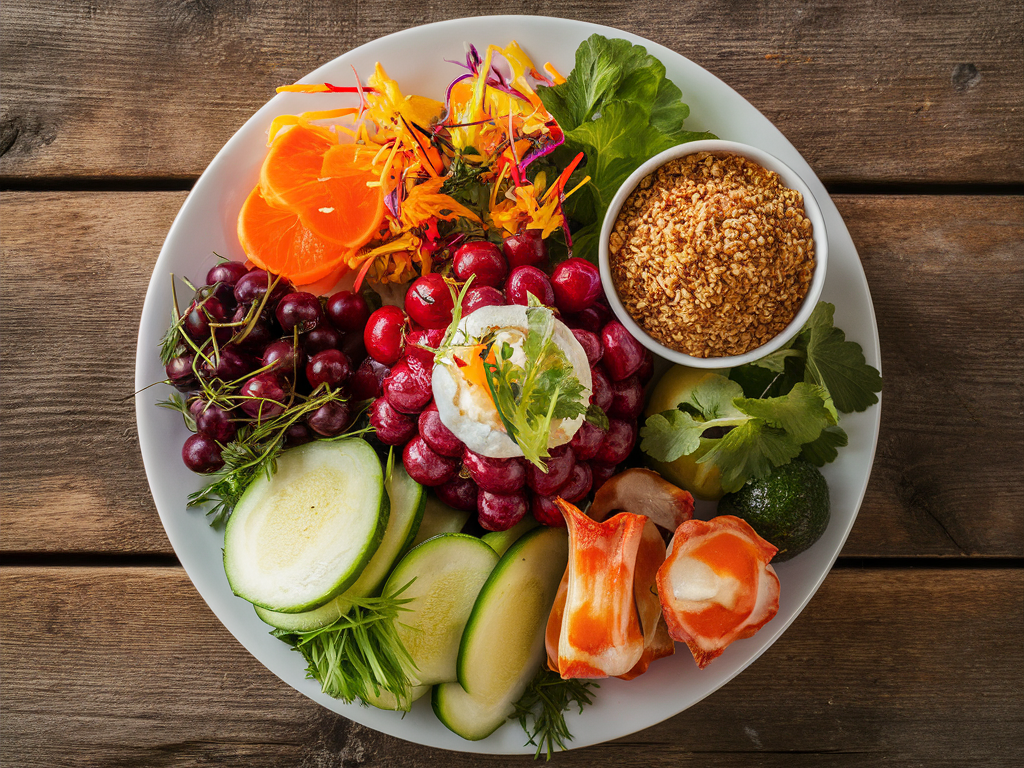Maintaining optimal digestive wellness is fundamental to your overall health and well-being. The complex ecosystem within your intestinal tract, known as the gut microbiome, influences everything from your immune function to your mental health. If you’re experiencing digestive discomfort or other seemingly unrelated health issues, your gut may be sending you important signals. Fortunately, science has revealed numerous natural approaches to restore intestinal balance without relying on medications.
Signs of Poor Gut Health
Before addressing solutions, it’s important to recognize the warning signs that your digestive system might be compromised. Your body communicates gut distress through various symptoms:
Digestive Discomfort
Persistent bloating, excessive gas, constipation, or diarrhea aren’t just inconveniences—they’re potential indicators of an imbalanced gut microbiome. These symptoms often signal that your digestive system is struggling to process food efficiently or maintain proper bacterial balance.
Food Sensitivities
Developing new intolerances to foods you previously enjoyed could indicate increased intestinal permeability, commonly known as “leaky gut.” This condition allows partially digested food particles to penetrate the intestinal barrier, triggering immune responses and sensitivities.
Unexpected Weight Fluctuations
Gaining or losing weight without changes to your diet or exercise routine may reflect gut dysbiosis. An imbalanced microbiome can affect your body’s ability to absorb nutrients, regulate blood sugar, and store fat.
Sleep Disturbances and Energy Depletion
Poor gut health can disrupt your serotonin production—since approximately 90% of this mood-regulating neurotransmitter is produced in your digestive tract. This disruption often manifests as insomnia, restless sleep, and persistent fatigue.
Skin Conditions
The gut-skin axis is well-documented in scientific literature. Conditions like eczema, psoriasis, acne, and rosacea frequently correlate with intestinal inflammation and microbiome imbalances.
Autoimmune Responses
Research increasingly links autoimmune disorders to gut health. Conditions like rheumatoid arthritis, thyroid issues, and multiple sclerosis may be influenced by intestinal permeability and resulting systemic inflammation.
Mood Disorders
The bidirectional gut-brain connection means digestive disturbances can manifest as anxiety, depression, and mood instability. Your intestinal bacteria produce neurotransmitters that directly impact brain function and emotional regulation.

10 Natural Strategies to Improve Gut Health
Addressing digestive wellness doesn’t require prescription medications. These evidence-based approaches can transform your gut health naturally:
1. Increase Dietary Fiber Intake
Benefits of Dietary Fiber
Fiber comes in two essential forms: soluble fiber, which dissolves in water and helps regulate blood sugar, and insoluble fiber, which adds bulk to stool and supports digestive transit. Both types are crucial for microbiome diversity and intestinal function.
Optimal Fiber Sources
Prioritize plant foods rich in diverse fibers: berries, apples, broccoli, Brussels sprouts, chickpeas, lentils, black beans, oats, quinoa, and chia seeds. Each provides unique fiber structures that nourish different beneficial bacterial strains.
Daily Intake Recommendations
Adults should aim for 25-38 grams of fiber daily, depending on age and sex. Most Americans consume less than half this amount. Increase intake gradually to minimize digestive adjustment symptoms like temporary bloating.
2. Consume Probiotic-Rich Foods
Understanding Probiotics
Probiotics are live beneficial microorganisms that, when consumed in adequate amounts, confer health benefits by supporting or replenishing your gut’s bacterial community. They help combat pathogenic microbes and strengthen intestinal barrier function.
Natural Probiotic Sources
Fermented foods deliver diverse probiotic strains: unsweetened yogurt with live cultures, kefir, traditional sauerkraut, kimchi, miso, tempeh, and kombucha. These foods introduce beneficial bacteria while often providing additional vitamins and antioxidants through the fermentation process.
Daily Integration Tips
Incorporate small servings of fermented foods throughout your day—yogurt at breakfast, sauerkraut with lunch, and tempeh at dinner. For maximum benefit, consume these foods raw or minimally heated, as high temperatures can destroy the beneficial organisms.
3. Add Prebiotic Foods to Your Diet
Prebiotics vs. Probiotics
While probiotics are beneficial bacteria, prebiotics are the specialized plant fibers that feed these bacteria. Think of prebiotics as fertilizer for your intestinal garden, stimulating growth of specific beneficial bacterial communities and enhancing their metabolic activity.
Top Prebiotic Food Sources
Excellent prebiotic sources include garlic, onions, leeks, asparagus, dandelion greens, Jerusalem artichokes, slightly unripe bananas, apples, flaxseeds, and oats. These foods contain specific fiber types like inulin, fructooligosaccharides (FOS), and resistant starch.
Microbial Feeding Mechanisms
When prebiotic fibers reach your colon undigested, beneficial bacteria ferment them, producing short-chain fatty acids (SCFAs) like butyrate. These compounds reduce inflammation, strengthen your intestinal lining, and even influence appetite regulation and immune function.
4. Reduce Sugar and Processed Food Consumption
Sugar’s Microbiome Impact
Refined sugars and simple carbohydrates provide quick energy sources for opportunistic and potentially harmful gut bacteria, while suppressing beneficial species. This disruption can lead to increased intestinal permeability and systematic inflammation.
Hidden Sugar Sources
Sugar lurks in unexpected places: commercial salad dressings, pasta sauces, yogurt, granola, protein bars, flavored oatmeal, and plant-based milk alternatives. Food additives like carrageenan, polysorbate-80, and artificial sweeteners may also disrupt gut bacterial balance.
Healthier Alternatives
Replace sweetened beverages with infused water or herbal tea, choose whole fruits over fruit juices, swap commercial salad dressings for olive oil and vinegar, and satisfy sweet cravings with small amounts of dark chocolate or cinnamon-dusted fruit.

5. Stay Properly Hydrated
Hydration-Digestion Connection
Adequate water intake enables efficient nutrient absorption and toxin elimination. It helps maintain the mucosal lining of your intestines and softens stool for easier passage. Dehydration often manifests as constipation, which allows harmful bacteria to proliferate in stagnant waste.
Optimal Hydration Guidelines
The National Academies of Sciences, Engineering, and Medicine recommend approximately 3.7 liters of fluids daily for men and 2.7 liters for women, including water from beverages and food. Individual needs vary based on activity level, climate, and health status.
Beyond Plain Water
Enhance hydration with herbal teas, mineral water, and hydrating foods like cucumber, celery, watermelon, and oranges. Bone broth offers hydration plus gut-healing compounds like collagen and glutamine that support intestinal cell regeneration.
6. Practice Mindful Eating
Benefits of Conscious Consumption
Eating slowly and chewing thoroughly activates digestive enzymes in your saliva, reducing the burden on your stomach and intestines. Proper chewing mechanically breaks down food, increasing surface area for enzymatic action and preventing large, poorly digested particles from reaching your colon.
The Gut-Brain Connection
Your enteric nervous system—sometimes called your “second brain”—communicates constantly with your central nervous system. Stress and distracted eating trigger the “fight-or-flight” response, redirecting blood flow away from digestion and suppressing digestive enzyme production.
Mindful Eating Techniques
Before eating, take three deep breaths. Eliminate screens during meals. Chew each bite 20-30 times. Put your utensils down between bites. Take time to appreciate the flavors, textures, and aromas of your food. This mindfulness practice improves digestion and often reduces portion sizes naturally.
7. Manage Stress Effectively
The Stress-Gut Relationship
Chronic stress alters gut motility, reduces beneficial bacterial populations, and increases intestinal permeability. The resulting inflammation creates a vicious cycle—gut disruption produces inflammatory compounds that further activate stress responses in the brain.
Evidence-Based Stress Reduction
Research supports several approaches for stress management: meditation, progressive muscle relaxation, diaphragmatic breathing, yoga, tai chi, regular time in nature, and social connection. Even brief daily practices can significantly reduce cortisol levels and intestinal inflammation.
Creating a Stress Management Routine
Identify your primary stress triggers and develop appropriate responses. Schedule non-negotiable stress-reduction activities in your calendar. Consider a morning routine of gentle movement and breathing exercises, and an evening wind-down ritual that signals to your body it’s time to shift from sympathetic (stress) to parasympathetic (rest and digest) nervous system dominance.
8. Prioritize Quality Sleep
Sleep-Microbiome Interactions
Sleep deprivation disrupts the intestinal barrier function and alters microbiome composition. Conversely, gut bacteria influence your sleep-wake cycle by producing and regulating neurotransmitters and hormones involved in sleep regulation, including serotonin, melatonin, and GABA.
Sleep Hygiene Fundamentals
Maintain consistent sleep-wake times, even on weekends. Create a cool, dark, quiet sleeping environment. Limit blue light exposure from screens 1-2 hours before bedtime. Avoid caffeine after noon and alcohol close to bedtime, as both disrupt REM sleep and gut bacterial balance.
Optimal Sleep Patterns
Most adults require 7-9 hours of quality sleep nightly. Your body follows natural circadian rhythms, with optimal digestive function occurring during daylight hours. Aligning your sleep schedule with these natural rhythms supports both microbiome health and metabolic efficiency.
9. Incorporate Regular Physical Activity
Exercise Benefits for Gut Diversity
Regular physical activity increases beneficial bacterial species and microbial diversity while enhancing gut transit time. Exercise also reduces intestinal inflammation and strengthens the gut barrier function, partially independent of diet and body composition.
Digestive-Friendly Movement
Different movement types offer unique gut benefits: moderate aerobic exercise stimulates healthy gut contractions; yoga poses like twists and forward folds massage internal organs and stimulate digestive function; and strength training may positively impact gut permeability by reducing visceral fat, which produces inflammatory compounds.
Building Sustainable Movement Habits
Find activities you genuinely enjoy rather than forcing yourself into unpleasant exercise routines. Start with just 10 minutes daily and gradually increase duration and intensity. Consider walking after meals to enhance digestion, or morning stretching to stimulate gastrointestinal activity.

10. Consider Intermittent Fasting
Research on Digestive Rest
Emerging research suggests that periods without food intake allow your digestive system to clear out cellular debris through a process called autophagy, potentially reducing inflammation and supporting microbiome diversity. Giving your gut regular rest periods may strengthen its regenerative capacity.
Intermittent Fasting Approaches
Common methods include time-restricted eating (consuming all calories within an 8-12 hour window daily), the 5:2 method (eating normally five days weekly while restricting calories to 500-600 on two non-consecutive days), and alternate-day fasting. Each offers flexibility to accommodate different lifestyles and preferences.
Precautions and Considerations
Fasting isn’t appropriate for everyone. Those who are pregnant, breastfeeding, underweight, under 18, or managing certain medical conditions should avoid fasting or consult healthcare providers first. Start with shorter fasting windows (12-14 hours) and monitor your body’s response before extending fasting periods.
Implementation Guide
Start Gradually
Overwhelming your system with multiple changes simultaneously can cause digestive distress and make it difficult to identify which strategies are most effective for your unique needs. Begin with 1-2 approaches that feel most manageable and sustainable for your lifestyle.
Sample Weekly Plan
Week 1: Focus on hydration and mindful eating
Week 2: Add one prebiotic and one probiotic food daily
Week 3: Incorporate a 10-minute post-dinner walk and a bedtime routine
Week 4: Experiment with reducing processed foods and sugar
Week 5: Add a daily stress-reduction practice
Week 6: Consider extending overnight fasting to 12-14 hours
Track Your Progress
Keep a simple journal noting your daily practices, dietary choices, digestive symptoms, energy levels, sleep quality, and mood. This documentation helps identify patterns and correlations between specific interventions and improvements in your physical and mental well-being.
Conclusion
Restoring and maintaining optimal gut health represents one of the most powerful steps you can take toward comprehensive wellness. The microbiome-balancing strategies outlined above—increasing fiber, consuming fermented foods, addressing stress, prioritizing sleep, staying hydrated, moving regularly, reducing processed foods, eating mindfully, adding prebiotics, and considering intermittent fasting—offer a holistic approach to digestive wellness.
While these natural approaches prove effective for many people, persistent digestive symptoms warrant professional medical consultation. Conditions like inflammatory bowel disease, celiac disease, and bacterial infections may require specific medical interventions alongside lifestyle modifications.
Remember that gut restoration is not an overnight process—your microbiome developed over your lifetime and requires consistent care to rebalance. With patience and persistence, these evidence-based strategies can transform not only your digestive function but potentially your immune resilience, mental clarity, energy levels, and overall vitality.

